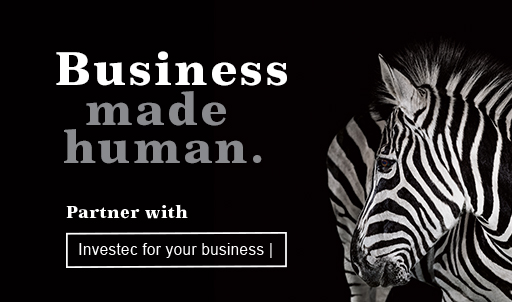TDS: I guess that’s the challenge, balancing the short-term focus with that long-term vision. Leila, the JSE has done a lot for sustainability over the years. They launched the first sustainability index back in 2004. They’ve also launched green bonds and I believe you are looking at blue bonds. What is the role of the JSE in terms of opening up the market for sustainable development?
LF: So, I think the JSE’s role is - there are two key areas. The first is on governance and the second is on stimulating the market and ensuring that we are able to capture and provide products that enable sustainable investment.
It’s estimated that around 35% of assets are being directed towards sustainable investments. Most of the people in the room I am sure would have heard about the largest asset manager in the world, Black Rock and Larry Fink who is the CEO, in his letter quite recently, very unambiguously, indicating the importance of sustainable development.
We saw Goldman Sachs recently saying that they won’t be arranging any listings if there are no females on boards. So, I think very rapidly what we are seeing in terms of the capital formation and flows of funds, is that sustainable development is becoming a genuine and very real magnet or attraction.
So, it’s our role to ensure that we unlock that new flow of capital and that we become potentially global leaders particularly in so far as the emerging markets go.
So, as you rightly said we launched green bonds two and a half years ago, we will be announcing tomorrow that we are going to be launching social bonds and sustainable bonds.
Social bonds and sustainable bonds are really debt-funded instruments that enable social project funding. We are also working on a social-impact bond and if we get this right that will be the first in the world to be listed.
There are impact bonds that are listed, that are funded in the private space, and effectively what an impact bond does is that the terms and conditions are linked to the impact to the economy or to the impact to the social environment rather than just simple objectives.
And so, it will be about how many people did you reach in building schools in certain rural areas for example. So, there will be a quantifiable impact that is defined as a target.
So, we are also very heavily focussed in the sustainable investment indices in fact, and I know that the purists would probably cringe at this, but our social responsibility index with FTSE has outperformed our two benchmark indices over the last three years.
Now those indices are compiled differently and so it’s different to compare mathematically appropriately, but nonetheless I think it’s really important to realise that there is economic benefit that is flowing from these sorts of listings.
In so far as the governance goes, the JSE has been a global leader around transparency relating to sustainable goals. We introduced a number of measures whereby boards were required to disclose gender and race equality on boards, they are also required to disclose remuneration policies.
Where this might head in the future, and particularly in our role in chairing the GISD, is to use our convening power to engage with other exchanges and ensure that we have a globally equivalent approach to transparency, to measuring sustainability, so that you avoid what the so-called "green washing" or companies who are reporting that they are sustainable but when you actually dig deep into exactly what it is that they are doing, it is very far from sustainable.
So, there is a role that we have to play to ensure that the governance and transparency drives a consciousness, it drives measurement and therefore it drives action. And that would be in both the climate- related areas as well as the social areas, so for example gender pay parity, for example the Gini coefficient between the least paid and the highest paid employee in an organisation.
So, ultimately our role in summary is really about creating innovative and relevant products which allow investment into social or climate- related or sustainable development products and creating governance standards that keep our corporates honest, that keep our corporates transparent and open.




